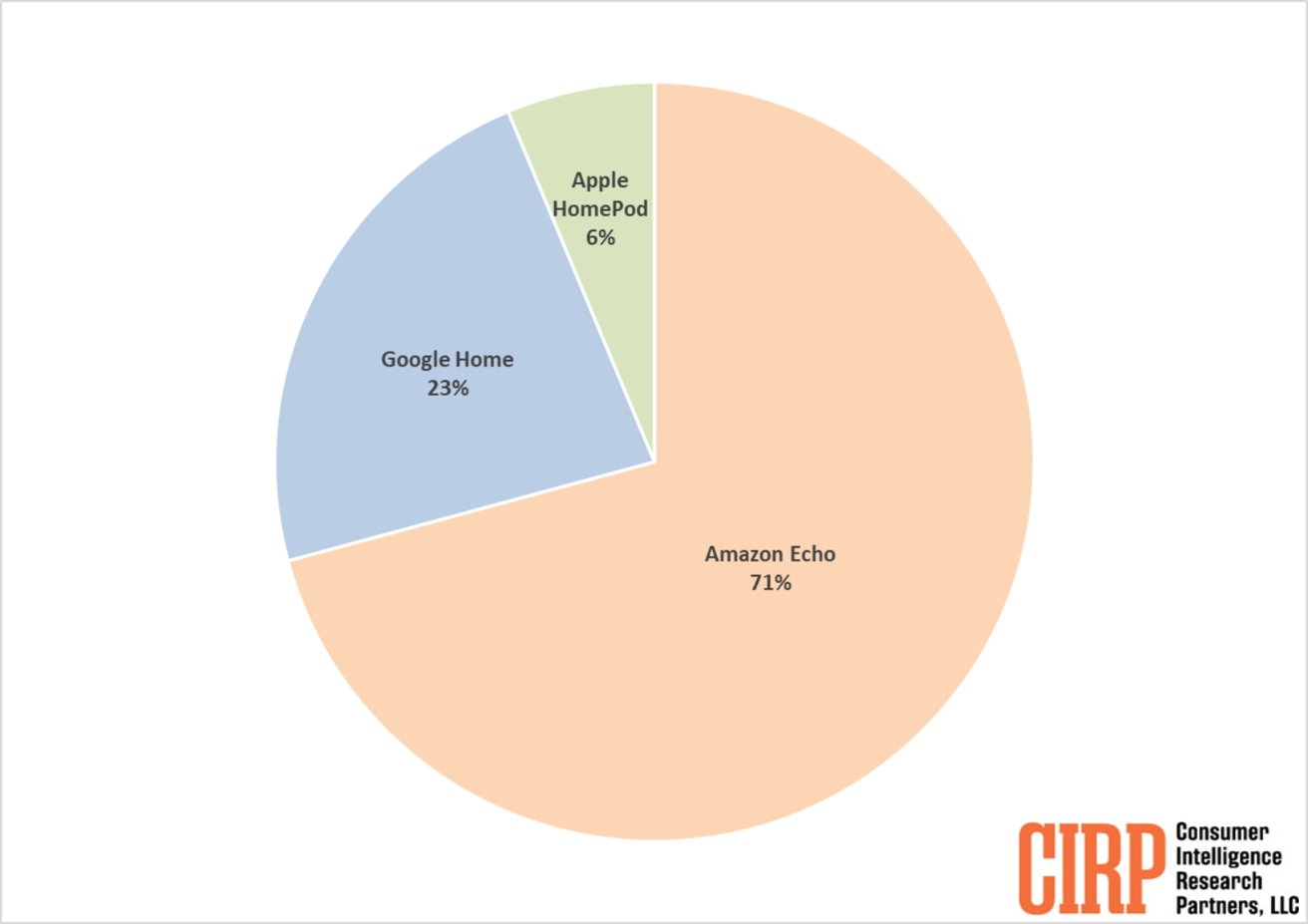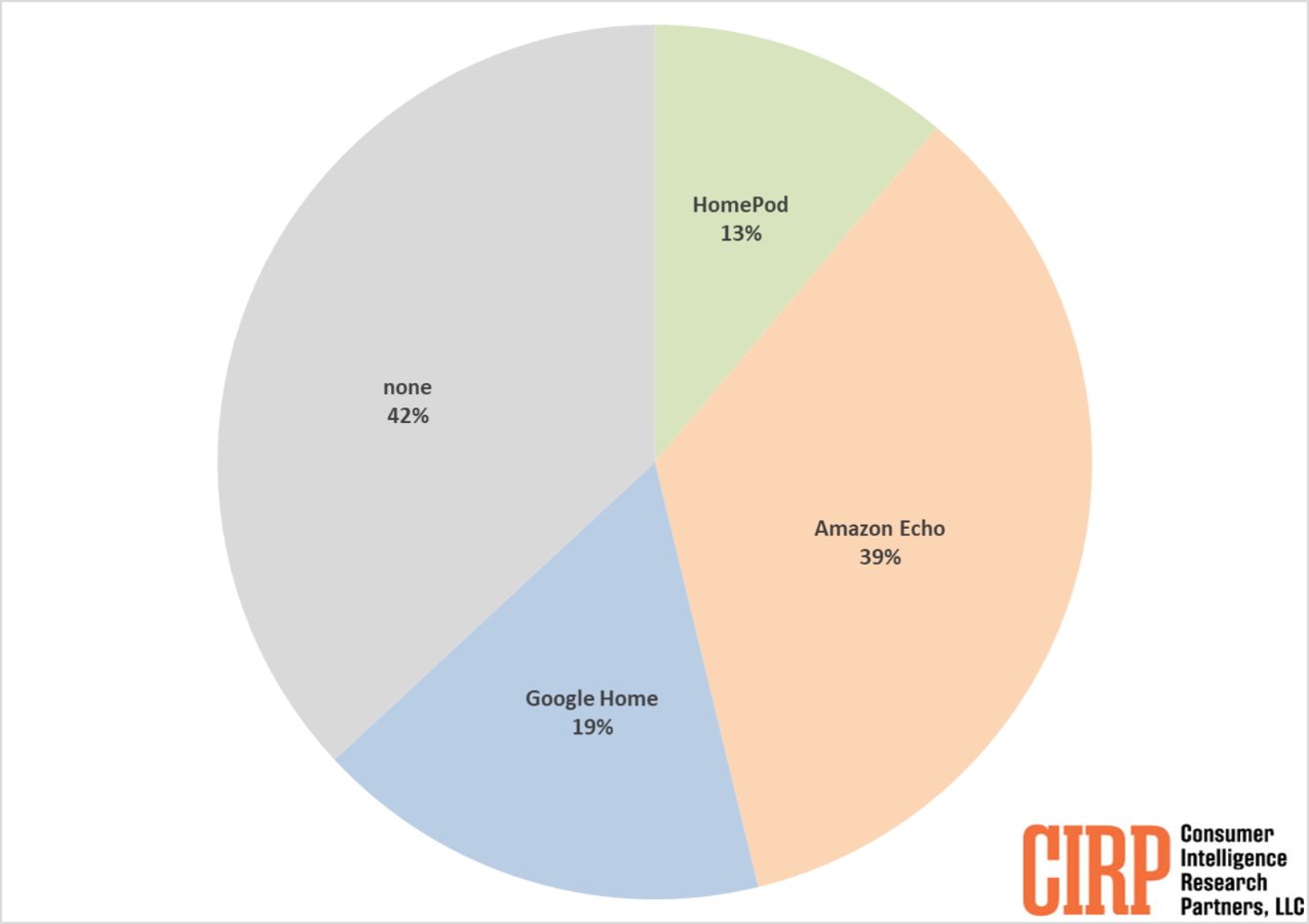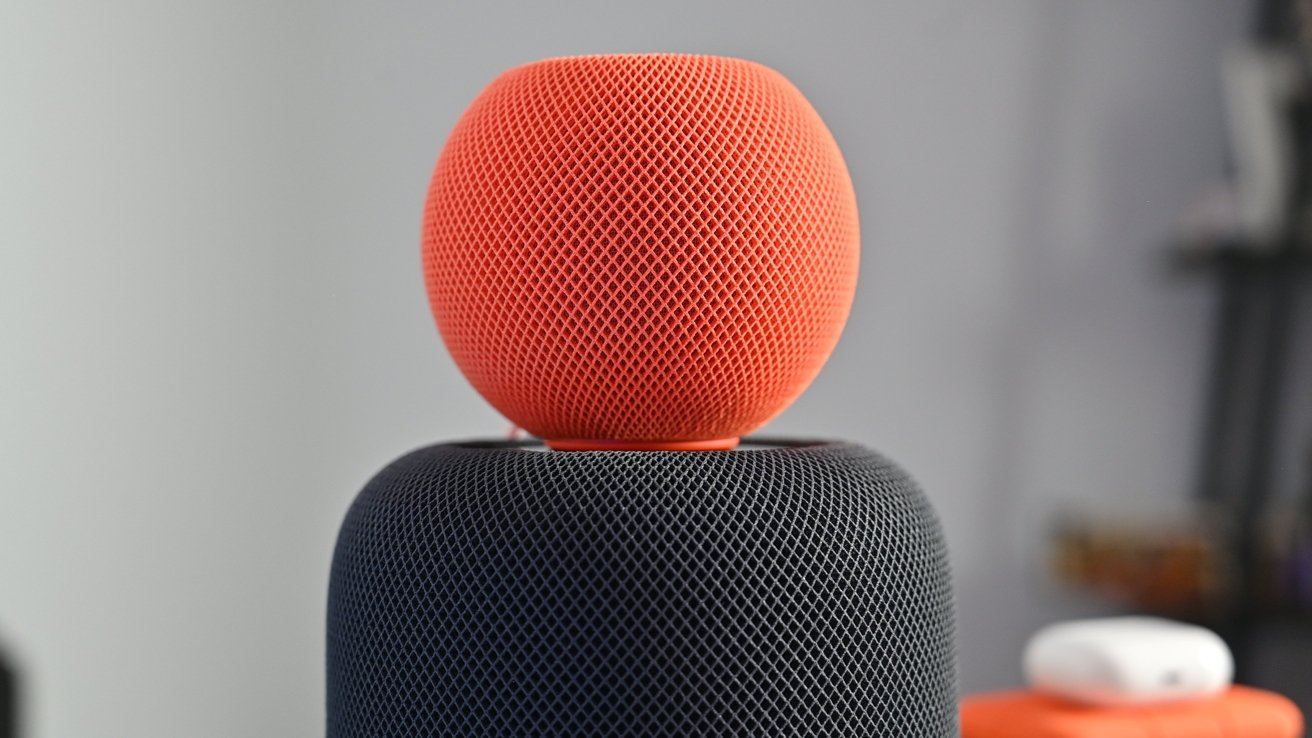Despite Apple's dominance in consumer tech, its smart home speaker strategy is lagging behind Amazon and Google. But the company has a new strategy.
Apple, a leader in smartphones, tablets, and wearables, has struggled to replicate its success in the smart home market. Recent reports show that the company's smart home offerings struggle to secure a significant market share.
Apple's woes with smart speakers are particularly evident, with Amazon's Echo series and Google's Home devices dominating the market. A Consumer Intelligence Research Partners (CIRP) survey reveals that Amazon's Echo commands over two-thirds of the U.S. market, while Google holds about one-quarter.
Despite its claims, Apple's HomePod only has a 6% market share, significantly lower than its competitors. Moreover, 40% of Apple device owners who have purchased iPhones, iPads, Macs, or Apple Watches in the past year also own an Amazon Echo, while 19% own Google's smart speakers.
Apple's HomePod has only 13% of customers, indicating it's losing to competitors and failing to attract its most loyal users.
The ecosystem dilemma
The entrenched nature of smart home ecosystems, with Amazon and Google's more extended history and broader device integration, poses a challenge for Apple. Platform stickiness, similar to iOS vs. Android, hinders Apple's progress.
 Percentage of smart speaker owners who purchased a device in the twelve months leading up to June 2024. Image credit: CIRP
Percentage of smart speaker owners who purchased a device in the twelve months leading up to June 2024. Image credit: CIRPSmart home users stick with their setups, and Amazon and Google's interconnected platforms seamlessly integrate with third-party devices. Apple struggles to introduce better integration without convincing users to overhaul their arrangements.
The company's cautious approach, the high price, and the limited functionality of its first HomePod hindered adoption. Its focus on premium devices with tight ecosystem integration didn't translate well in the smart speaker market.
Apple's HomeKit platform faced challenges due to strict requirements for third-party accessory makers.
Apple's new strategy
To address these challenges, Apple is enhancing its HomePod line with broader accessory support, improved integration with Apple Intelligence, and possibly a screen-based home device. The company refines its HomeOS software for a seamless smart home experience but faces challenges in making significant inroads.
 Proportion of Apple customers who own a smart speaker during the twelve months leading up to June 2024. Image credit: CIRP
Proportion of Apple customers who own a smart speaker during the twelve months leading up to June 2024. Image credit: CIRPThe smart home market levels off with fewer groundbreaking innovations. Many users prefer smart speakers for streaming music or checking the weather over complex home automation systems.
Apple needs compelling use cases to convince consumers to invest in its ecosystem. Despite planned improvements, the company faces a challenging battle in the mature smart speaker market.
Amazon and Google lead with an extensive head start. The question is whether Apple can offer something truly different to distinguish itself.
 Andrew Orr
Andrew Orr







-m.jpg)






 Christine McKee
Christine McKee
 Charles Martin
Charles Martin
 Mike Wuerthele
Mike Wuerthele
 Marko Zivkovic
Marko Zivkovic
 Malcolm Owen
Malcolm Owen


 William Gallagher
William Gallagher

-m.jpg)






20 Comments
We have both HomePods and Amazon echo.
IMO these are the top 2 reasons on each side of the argument.
- great integration with Apple Music
- (full-sized HomePod) great sound quality, especially if you have a pair
- good addition if you are fully on with Apple
Cons:
- Siri is beyond useless. It’s embarrassingly bad. So not really a Smart speaker.
- (HomePod mini) very poor sound quality for music
- doesn’t really integrate with apps in any useful way
Maybe, just maybe, Siri sucks, the HomePods do not have Bluetooth, and there is no ability to pair Minis with HomePods for Home Cinema?
It's a shame that AppleInsider decided to publish half a story--I guess "Apple is failing at BLANK" is reliable click-bait--but the truth is that the whole story is a lot more interesting. You'd be forgiven for thinking that Amazon must be crushing it in the smart speaker space with over two-thirds of the market. Except it's not. Here's the lead sentence from the Wall Street Journal's article about Amazon's Alexa business that appeared this past July:
"Echo speakers are the type of business success companies don’t want: a widely purchased product that is also a giant money loser." https://www.wsj.com/tech/amazon-alexa-devices-echo-losses-strategy-25f2581a
The truth is that Amazon's whole Alexa hardware business has been a money-losing black hole since it debuted, with over $25 billion in losses just between 2017-21. The WSJ couldn't even assess losses before or after those years. It wasn't supposed to be this way. The idea was that Amazon would sell Alexa hardware at a loss, grab market share and--once Alexa was firmly entrenched in millions of American homes--make up those losses through Alexa becoming an indispensable shopping assistant and engine of additional purchases through suggestions, etc. This is what Amazon calls Downstream Impact or DSI. Well, Amazon got the market share it wanted by selling hardware at a loss, but the DSI never appeared. Now Amazon is rumored to be going to a paid Alexa subscription model to help recoup losses on future sales. Needless to say, this has never been nor will it ever be the Apple way: grabbing market share by selling hardware at a loss. Alexa hardware isn't a business--it's a loss leader that generates nothing to make up for its losses. It's what the Costco $1.50 hot dog would be if everyone just bought the hot dog and then left the store.
But there's more to Apple's home speaker problem than this. I'm shocked that AI didn't call out the elephant in the room: Siri sucks. I'm a 100% Apple guy, except when it comes to smart speakers, where I have Alexa Dots scattered around my apartment. I'd happily replace them with HomePod Minis except that Siri sucks. And it now seems we'll have to wait til March to find out if the Apple Intelligence version of Siri doesn't suck anymore. We shall see.
My needs for a smart speaker are pretty simple — set a timer occasionally, tell me the weather, play [this music], read me my last email, remind me of something later. Siri does all of these things without flaw. I admit that I have found that a request to play a specific radio station has to be worded rather precisely to be consistently fulfilled: “Siri, play [radio station call letters, articulated separately] on [TuneIn in my case].”
The one HomePod mini I own is in the bedroom. It also answers questions when I’m in there, but it is mainly used for an alarm clock and weather checker. Once in a while I will ask Siri to play some music on all the HomePods, and it does that.